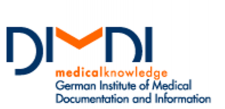Germany's sperm bank plans leaked
By Ben Knight,
Deutsche Welle
| 11. 03. 2016
Germany is planning a central sperm donor database to make it easier for children to use their legal right to find their biological fathers. Donor children's associations say it's overdue, but have some concerns.
The German government is finally making good on its promise to the children of sperm donors by setting up a central database to make it easier for them to find their biological fathers.
Health Minister Hermann Gröhe's draft law, shown to DW but not yet published, includes a plan to create a central database of the names and addresses of donors whose donations resulted in a birth.
Sperm donations have been collected in Germany since 1970, and according to the Spenderkinder Verein ("organization for donor-conceived children"), over 120,000 sperm donor children have been born since then, and more than a thousand more are born each year. The constitutional court ruled in 1989 that they have the right to know the identity of their biological fathers, but in practice this is often impossible because many clinics delete their records after 10 years - the minimum period that...
Related Articles
Flag of South Africa; design by Frederick Brownell,
image by WikimediaCommons users.
Public domain, via Wikimedia Commons
What is the legal status of heritable human genome editing (HHGE)? In 2020, a comprehensive policy analysis by Baylis, Darnovsky, Hasson, and Krahn documented that more than 70 countries and an international treaty prohibit it, and that no country explicitly permits it. Policies in some countries were non-existent, ambiguous, or subject to possible amendment, but the general rule remained, even after one...
By Tamsin Metelerkamp, Daily Maverick | 11.18.2024
The National Health Research Ethics Council (NHREC) has confirmed that heritable human genome editing (HHGE) remains illegal in South Africa, after changes in the latest version of the South African Ethics in Health Research Guidelines sparked concern among researchers that...
By Bernice Lottering, Gene Online | 11.08.2024
South Africa’s updated health-research ethics guidelines, which now include heritable human genome editing, have sparked concern among scientists. The revisions, made in May but only recently gaining attention, outline protocols for modifying genetic material in sperm, eggs, or embryos—changes that...
By Jantina de Vries, EthicsLab | 11.15.2024
The conversation around human heritable genome editing (HHGE) in South Africa is marked by controversy and conflicting interpretations of the law. At the center of this debate lies a team of lawyers based at a South African university, who have...




